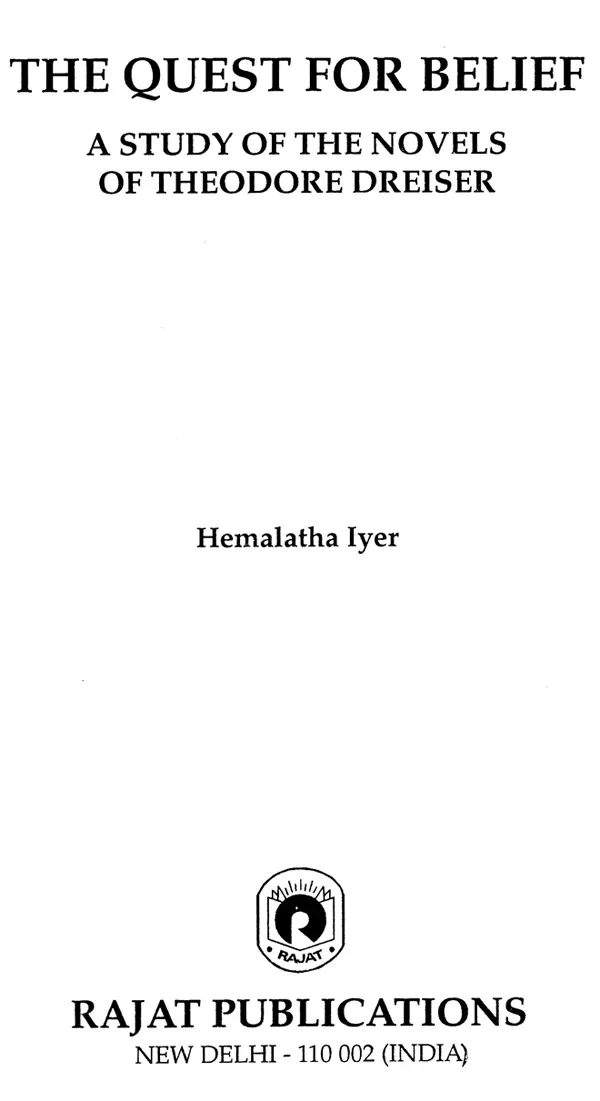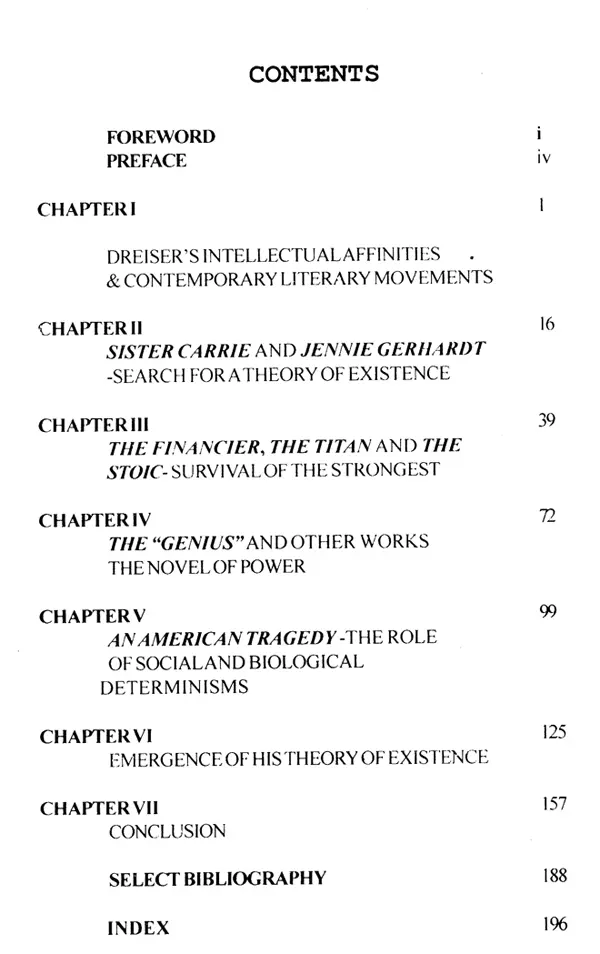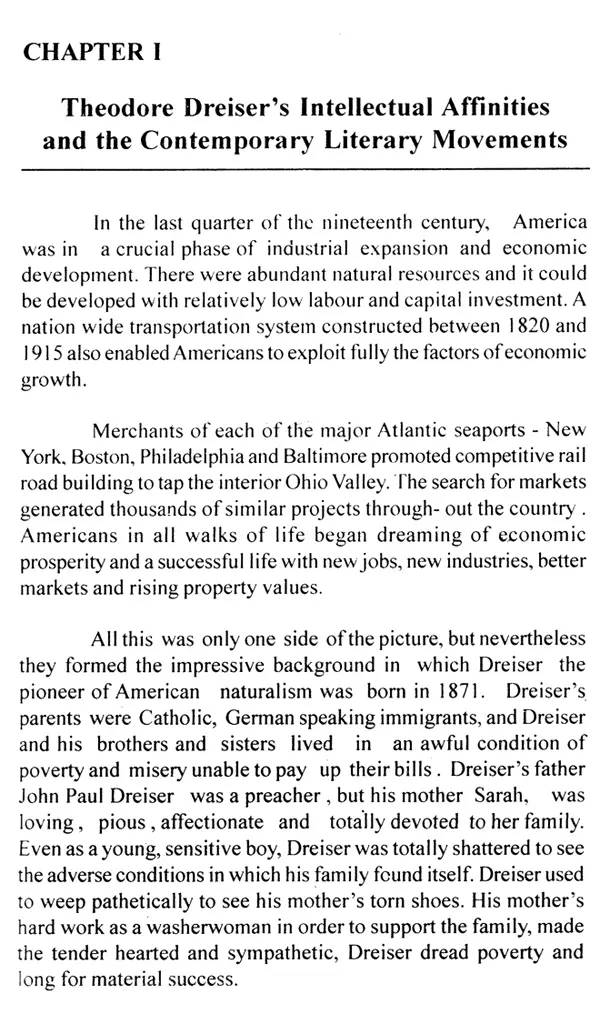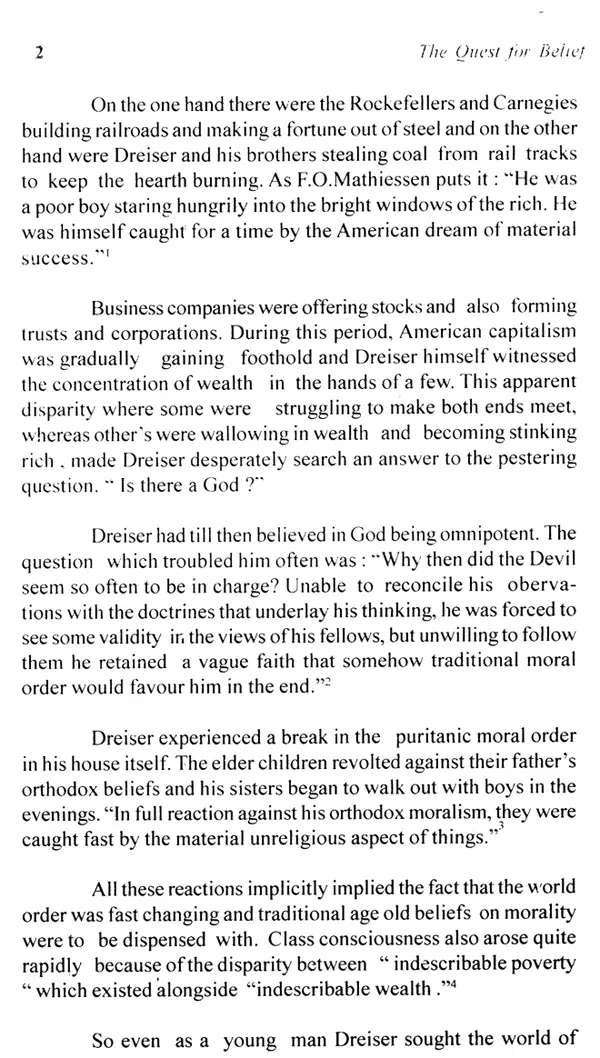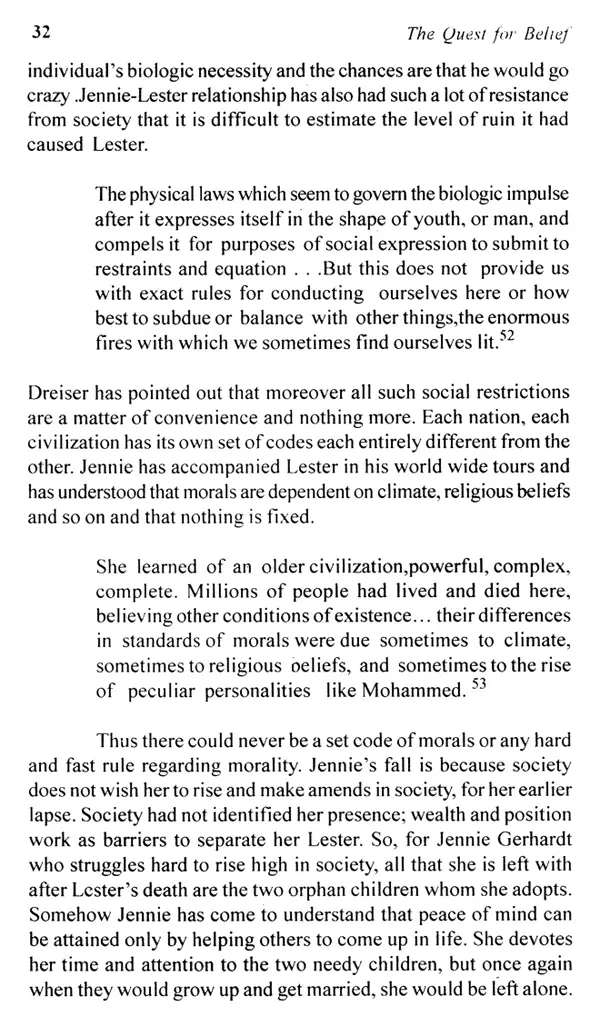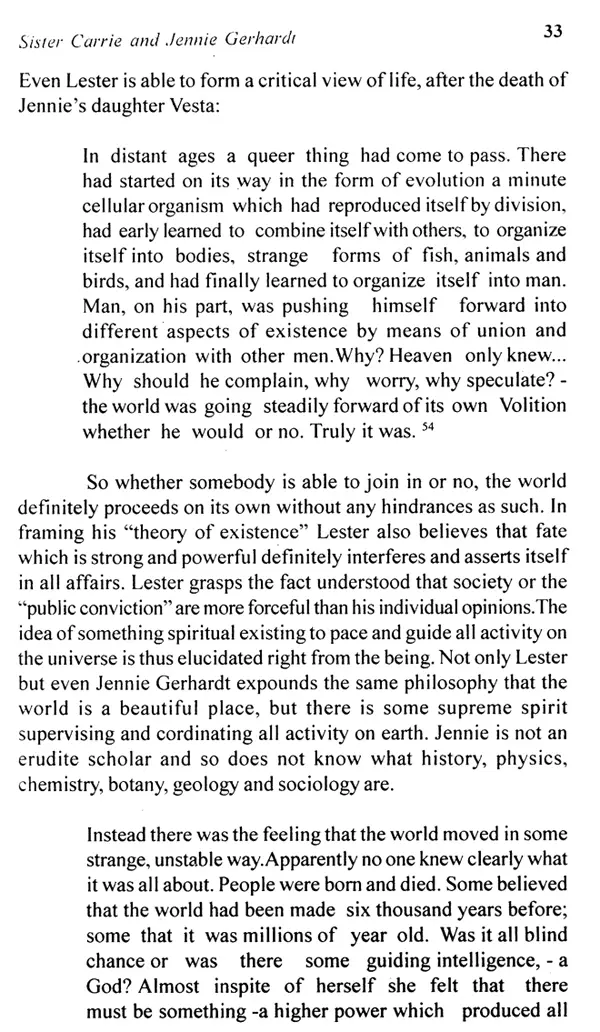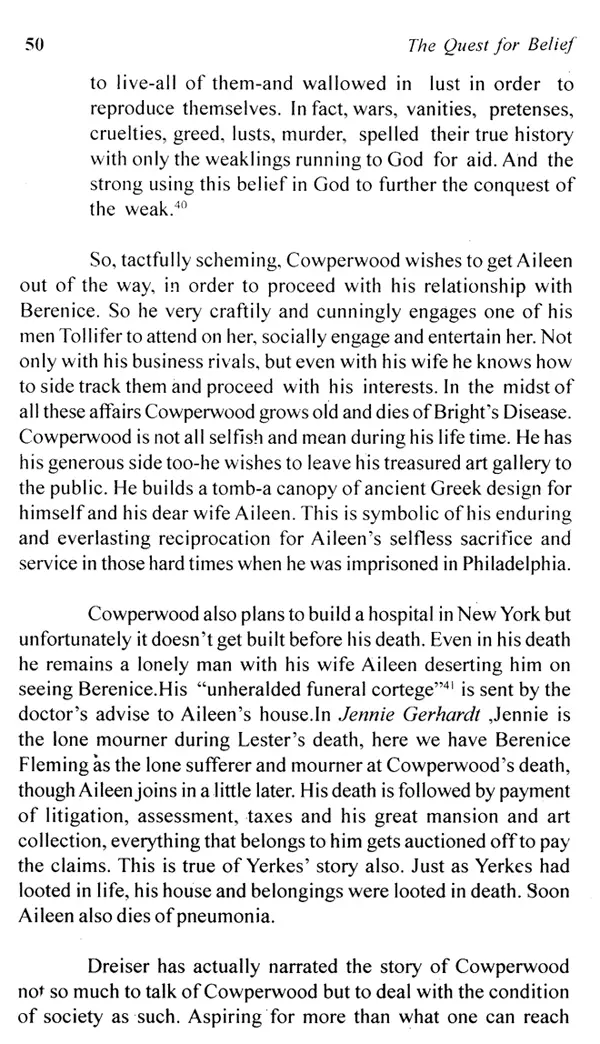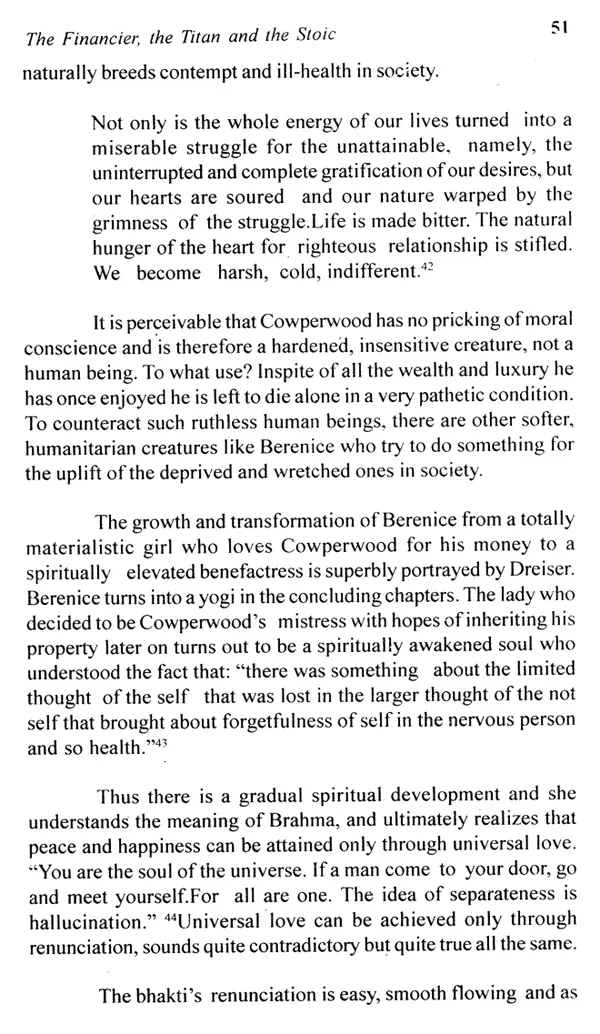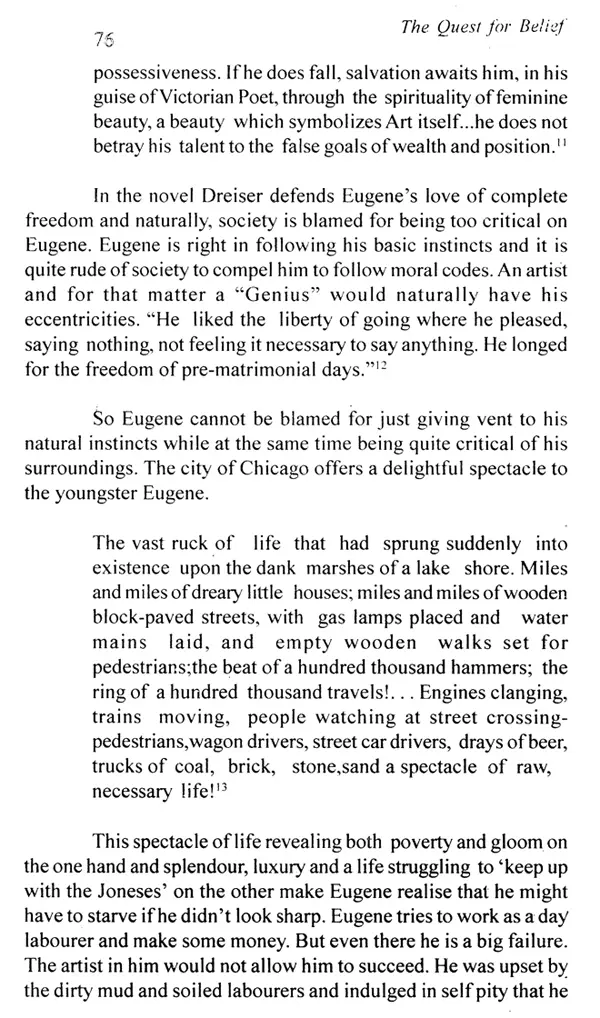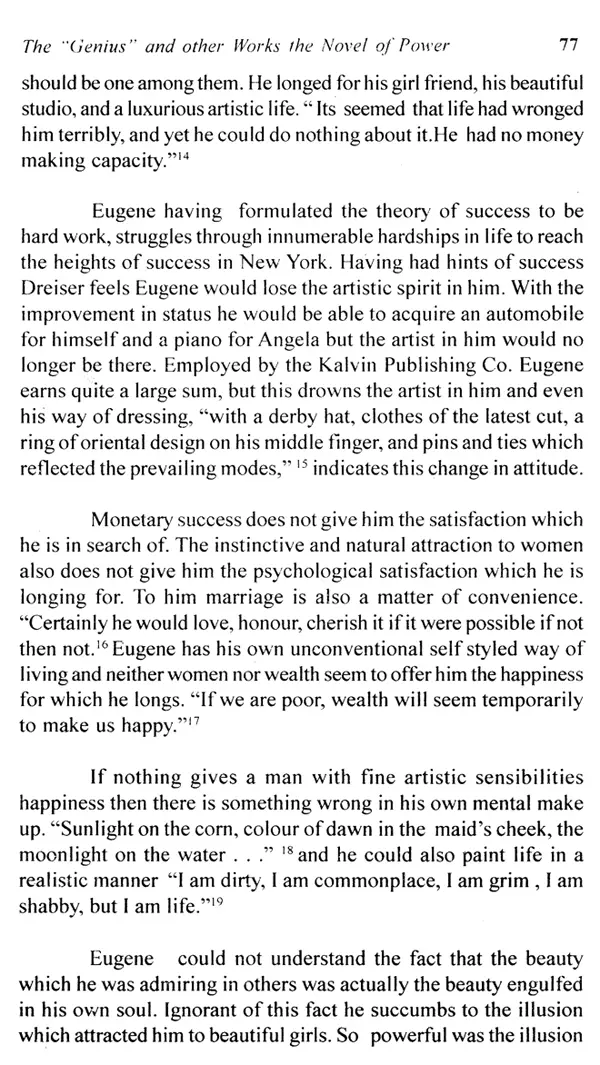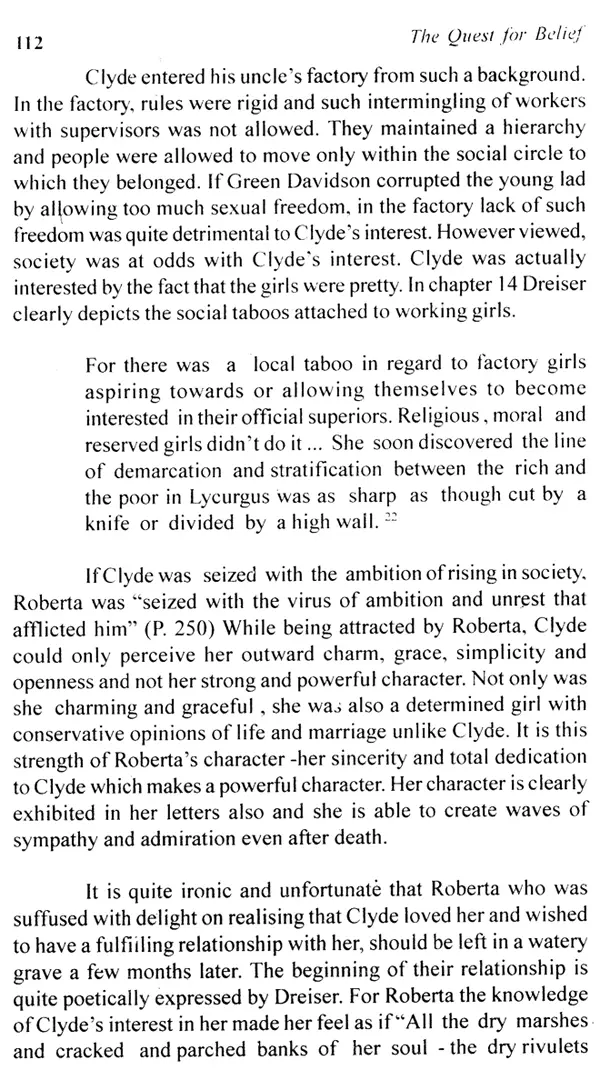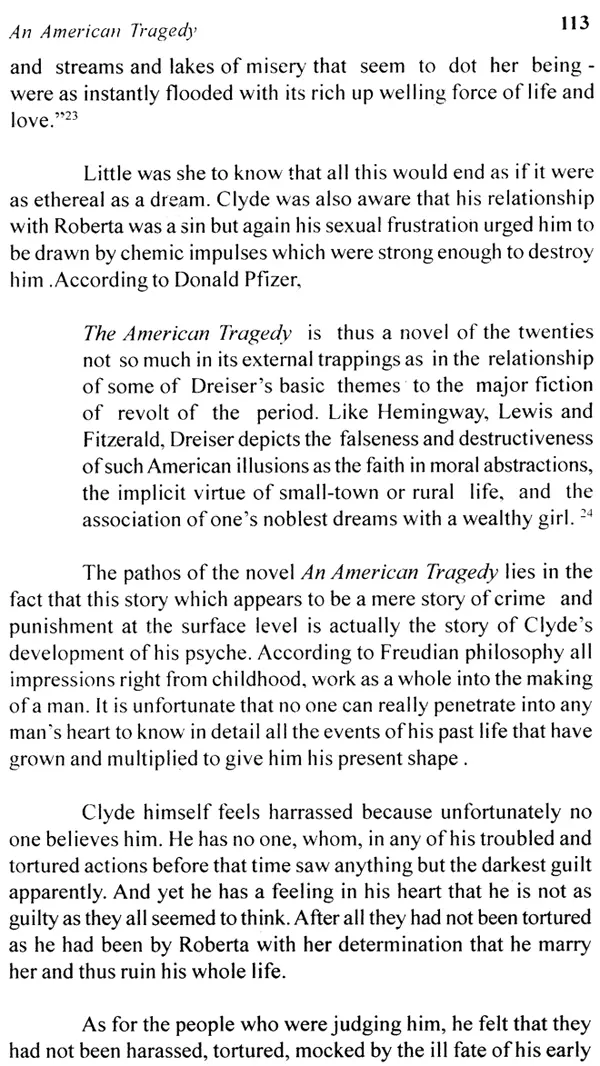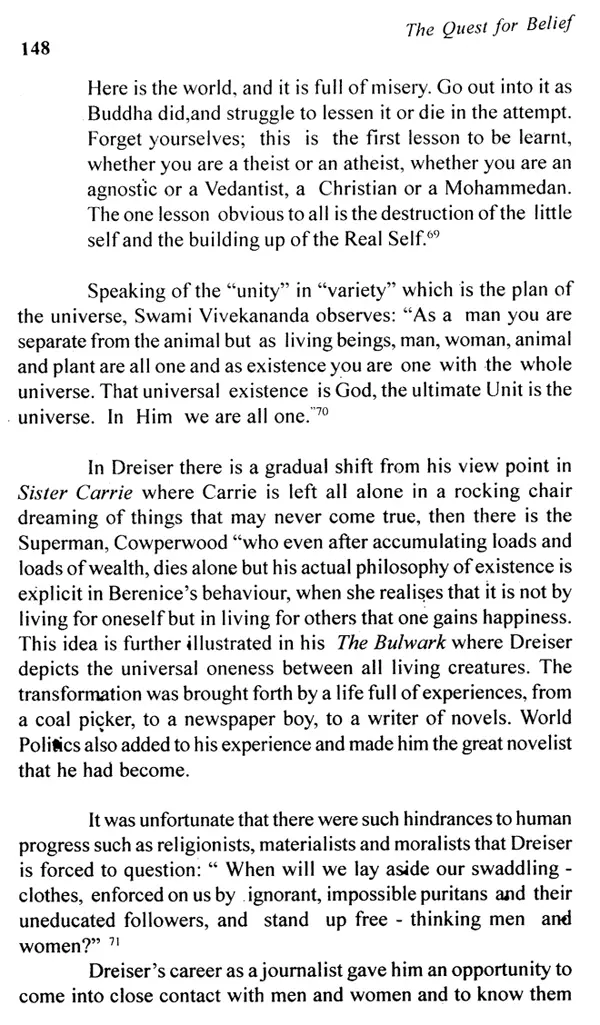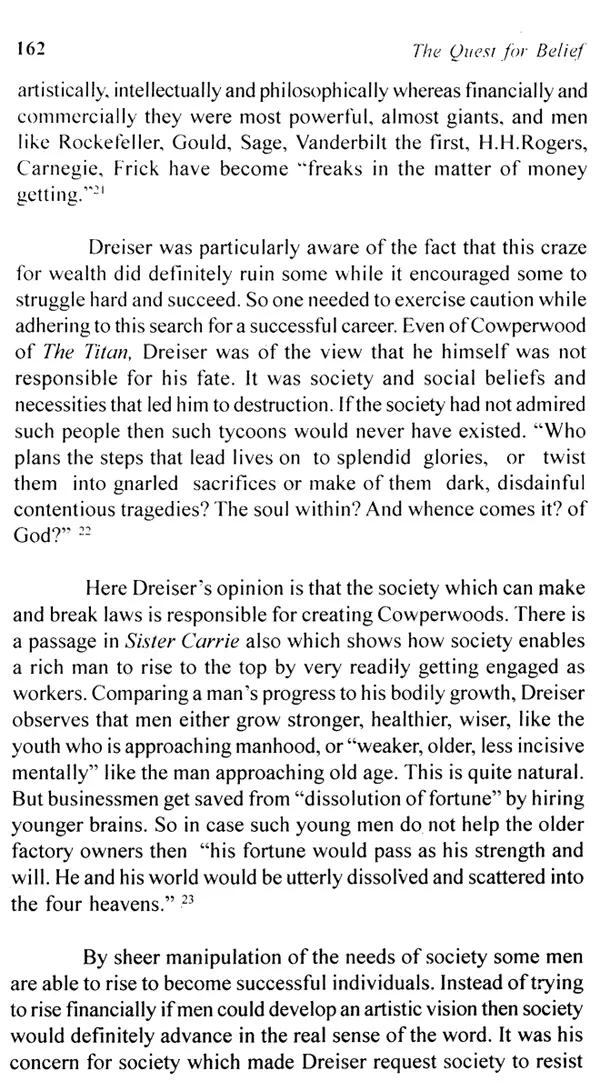
The Quest For Belief - A Study of The Novels of Theodore Dreiser
Book Specification
| Item Code: | UBA002 |
| Author: | Hemalatha Iyer |
| Publisher: | Rajat Publications, Delhi |
| Language: | English |
| Edition: | 2006 |
| ISBN: | 9788178802527 |
| Pages: | 195 |
| Cover: | HARDCOVER |
| Other Details | 8.90 X 5.90 inch |
| Weight | 370 gm |
Book Description
The question of "who am I" has been addressed by man from time immemorial and every individual at different phases of his life has responded to this in his own experiential manner. Theodore Dreiser, the renowned American writer, who made his mark with his famous novels, Sister Carrie, Jennie Gerhardt, and An American Tragedy has similarly left tell tale marks of his spiritual growth in the course of his novels.
The book The Quest for Belief deals with the various stages of experience in life which lead to the spiritual transformation of Theodore Dreiser from being an agnostic to one of a believer. The book brings our parallels from The Gita and Dreiser's quest for a meaning of life and how he finally arrived at it from his readings of Vedic Philosophy.
Hemalatha Iyer a graduate of Fatima College, Madurai, obtained her Masters' from Ethiraj College, Chennai, and her Doctorate in English Literature from Gurukul Kangri Vishwavidyalaya, Haridwar. At present she is a Reader in the English Department at Kanya Gurukul Mahavidyalaya, Dehradun.
.
The question of who am I' has been addressed by man from time immemorial and every individual at different phases of his life has responded to this in his own experiential manner. Literature has provided a wide canvas to explore this phenomenon and many writers have explored this in their writings. Theodore Dreiser, the renowned American writer, who made his mark with his famous novels Sister Carrie, Jennie Gerhardt and an American Tragedy, has similarly left tell tale marks of his spiritual growth in the course of his novels. Dreiser has explored the mystery of life and has evolved a belief in the universal truth of Aham Brahmasmi- the unifying principle of universal kinship or universal brotherhood.
What impressed me about the book is the fact that Theodore Dreiser, who lived in America at the time when the American Quest for Wealth was at its peak- the age of money barons- the Rockefellers, the Carnegies, the Vanderbilts, humbly. rejects the idea of wealth accumulation and turns to India for spiritual solace and enlightenment.
Dreiser's novels reveal that if one individual emerges to be strong, powerful and manipulating with accumulation of wealth, then collectively he can be crushed by society which can overpower him. If Capitalism is a failure, Communism which does not practice what it preaches is also a failure. So according to Dreiser the only solution to America's giddiness in wealth acquisition is to return to the world of spirituality, learn to establish 'Oneness' with nature, 'Cosmic Consciousness' with the Universe and thrive on an atmosphere of universal love, humanism and wholehearted service to society.
Theodore Dreiser has an acclaimed place in American. literature. His novels Sister Carrie, Jennie Gerhardt and An American Tragedy have been highlighting the condition of society along with its weaknesses and myths. As far as criticism is concerned, critics have carefully observed and analysed Dreiser's interest in Naturalism, Social Darwinism, Determinism and Realism, and have slotted him as a realist, naturalist and so on.
At a deeper, more profound level, what struck me was the gradual development of another powerful theme in the course of Dreiser's novels -his Quest For Belief. Questioning the disparity between man's desires and his ultimate accomplishment. Dreiser almost arrived at a solution to the mystery which confounded him. This enabled him to frame his ideology and establish his fervent belief in the Just, Intelligent, Loving and Supremely Resourceful and Powerful Force or Law or Being which creates and carries the universe on towards its destiny. The present study is therefore an attempt to trace the development of his thoughts through various stages until finally he arrives at the solution towards the end of his career, with the publication of The Bulwark.
